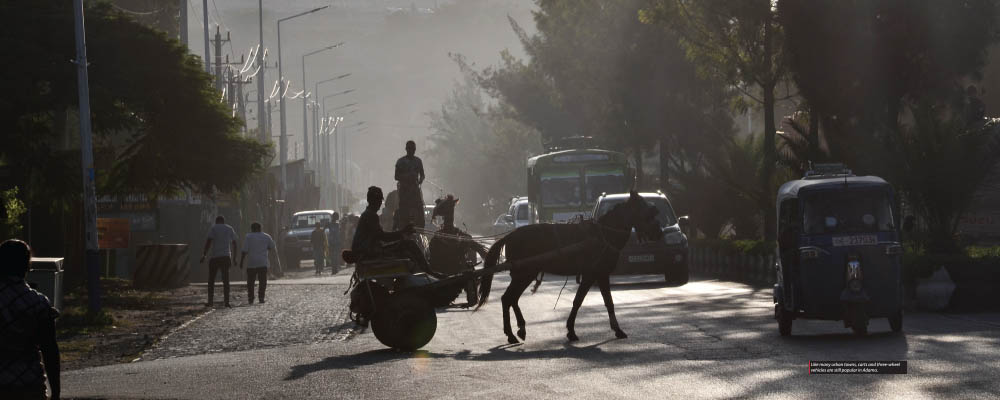The strength of a nation is measured by and depends even more on the quality, rather than the number of its people. The potential capacity and capability of people are nation’s most precious possessions. Therefore, it is imperative to recognize the true value of human resources with regards to driving the development of an economy and the existence of a nation.
Towards Sustainable Tech Markets
In Ethiopia, it is customary to confuse technology as a by-product of development. Unfortunately, it is not only the average Joe or Jane who holds this erroneous belief, but most government officials and policymakers along with administrators in the public universities. Yet, technology is a tool for development.
The confusion, is partly rooted in the mix up between marketable tech products and technology. This article addresses the issues concerned with the prior; is there a room for a sustainable tech market in Ethiopia?
Can it help commercial banks mobilize more deposits?
Commercial banks in Ethiopia are currently engaged in ever-more stiff competition to mobilize deposits. Most notably, almost all of the banks have begun to use face to face marketing to gain the attention of new customers. It is now not unusual to see tellers from various commercial banks pleading with people in streets, cafes and other public places to open bank accounts at their respective branches. Experts argue that such methods of deposit mobilization are not effective or sustainable, and criticize banks for not coming up with products and services for the unbanked population, as EBR’s Samson Berhane writes.
How Safe is Bottled water?
In the past decade, the bottled and mineral water industry has registered enormous growth. From less than 10 a decade ago, the number of companies in the industry has grown now to 70. However, even more operators who bottle water without licenses are filling the market, exposing consumers to health related risks. EBR’s Ashenafi Endale reports.
In the past, house rents in Addis Ababa have increased chiefly because of the critical housing shortage and the surge in demand for apartments and houses.
Over the past three months, however, rental prices have risen at an alarming rate, because of the rise in the number of Eritrean migrants, among other factors. EBR’s Ashenafi Endale investigates the matter.
Can it be a vibrant Hub?
Located 99 kilometers from Addis Ababa, Adama is one of the largest and most vibrant cities in the state of Oromia and is home to almost half a million people. Its key role as a route for a large portion of the nation’s imports and exports has made it one of the most energetic cities in Ethiopia. Even more, the completion of its first industrial park last month makes it one of the country’s most promising investment spots. Despite the growth in businesses’ desire to invest in Adama, the city administration has been unable meet demands for investment licenses, which have accumulated for the past four years. Recurrent water shortages and rising living costs have remained challenges for the city’s residents. EBR’s Ashenafi Endale, who visited the city last month, reports.
Success in the Face of Stereo Types
Just two months ago, Senait Bogale was crowned the Ethiopian Broadcasting Corporation Sports Personality of the Year in the female footballers’ category. Inspired by her siblings, four of whom are professional footballer players, Senait’s journey to success began at the age of 13 when she entered a local football training project where only boys were welcome. It did not take long for her to win the hearts of recruiters and win the Women’s Premier League title and other trophies with Dedebit Football Club. She was also part of the U20 national team in 2016. EBR Adjunct Writer Abiy Wendifraw sat down with the 20 year-old footballer to learn about her journey and future hope.
A Problem Ignored in Ethiopia
Child labour has long been discussed as an issue in many parts of the world. In particular, families in developing countries have long relied on all members, even the youngest, to help shoulder the load of providing for the family. Although some experts have contended that there are ways for children to help with families’ livelihoods without being affected themselves, many children sent out to work are exposed to violations of their rights through physical and even sexual abuse, labour abuse and human trafficking. EBR’s Menna Asrat reports.
The Entrepreneur Behind the Educational TV Show for kids
Bruktawit Tigabu is the mastermind behind one of the most popular television shows in Ethiopia- Tsehay Loves Learning- which is estimated to reach up to five million children every week. The gaps in the country’s early childhood education system prompted her to establish Whiz Kids Workshops, a social business that produces Tsehay Loves Learning and other educational materials. Bruktawit is also among the few social entrepreneurs in Ethiopia. EBR’s Menna Asrat sat down with her to learn what makes the 37 years old tick.
In Ethiopia, shortages in the availability of foreign exchange, also known as a foreign exchange crunch, has beenone of the pressing economic agendas for quite some time, and has lead to heated discussions. In response to the prevailing shortages, the government has recently taken some measures that aim to ameliorate the problem. Two actions standout in this regard: a fast crackdown on black market operators, and controlling the foreign currency that exits through Bole International Airport and boarder areas. As a result, confiscation of large amounts of foreign currencies (at least from the perspective of individual stances) continues to be reported.









